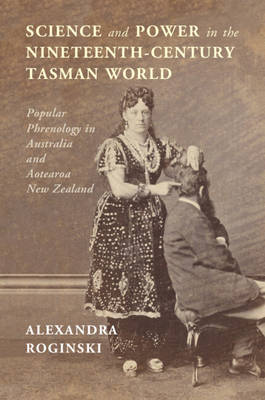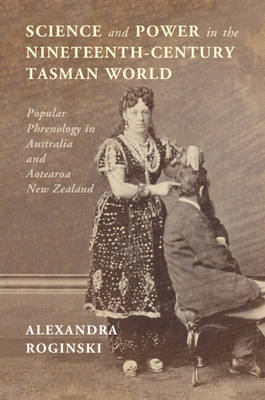
- Afhalen na 1 uur in een winkel met voorraad
- Gratis thuislevering in België vanaf € 30
- Ruim aanbod met 7 miljoen producten
- Afhalen na 1 uur in een winkel met voorraad
- Gratis thuislevering in België vanaf € 30
- Ruim aanbod met 7 miljoen producten
Zoeken
Science and Power in the Nineteenth-Century Tasman World
Popular Phrenology in Australia and Aotearoa New Zealand
Alexandra Roginski
€ 40,95
+ 81 punten
Uitvoering
Omschrijving
The contentious science of phrenology once promised insight into character and intellect through external 'reading' of the head. In the transforming settler-colonial landscapes of nineteenth-century Australia and Aotearoa New Zealand, popular phrenologists - figures who often hailed from the margins - performed their science of touch and cranial jargon everywhere from mechanics' institutions to public houses. In this compelling work, Alexandra Roginski recounts a history of this everyday practice, exploring how it featured in the fates of people living in, and moving through, the Tasman World. Innovatively drawing on historical newspapers and a network of archives, she traces the careers of a diverse range of popular phrenologists and those they encountered. By analysing the actions at play in scientific episodes through ethnographic, social and cultural history, Roginski considers how this now-discredited science could, in its own day, yield fleeting power and advantage, even against a backdrop of large-scale dispossession and social brittleness.
Specificaties
Betrokkenen
- Auteur(s):
- Uitgeverij:
Inhoud
- Aantal bladzijden:
- 289
- Taal:
- Engels
- Reeks:
Eigenschappen
- Productcode (EAN):
- 9781009010504
- Verschijningsdatum:
- 27/02/2025
- Uitvoering:
- Paperback
- Formaat:
- Trade paperback (VS)
- Afmetingen:
- 152 mm x 229 mm
- Gewicht:
- 390 g

Alleen bij Standaard Boekhandel
+ 81 punten op je klantenkaart van Standaard Boekhandel
Beoordelingen
We publiceren alleen reviews die voldoen aan de voorwaarden voor reviews. Bekijk onze voorwaarden voor reviews.











